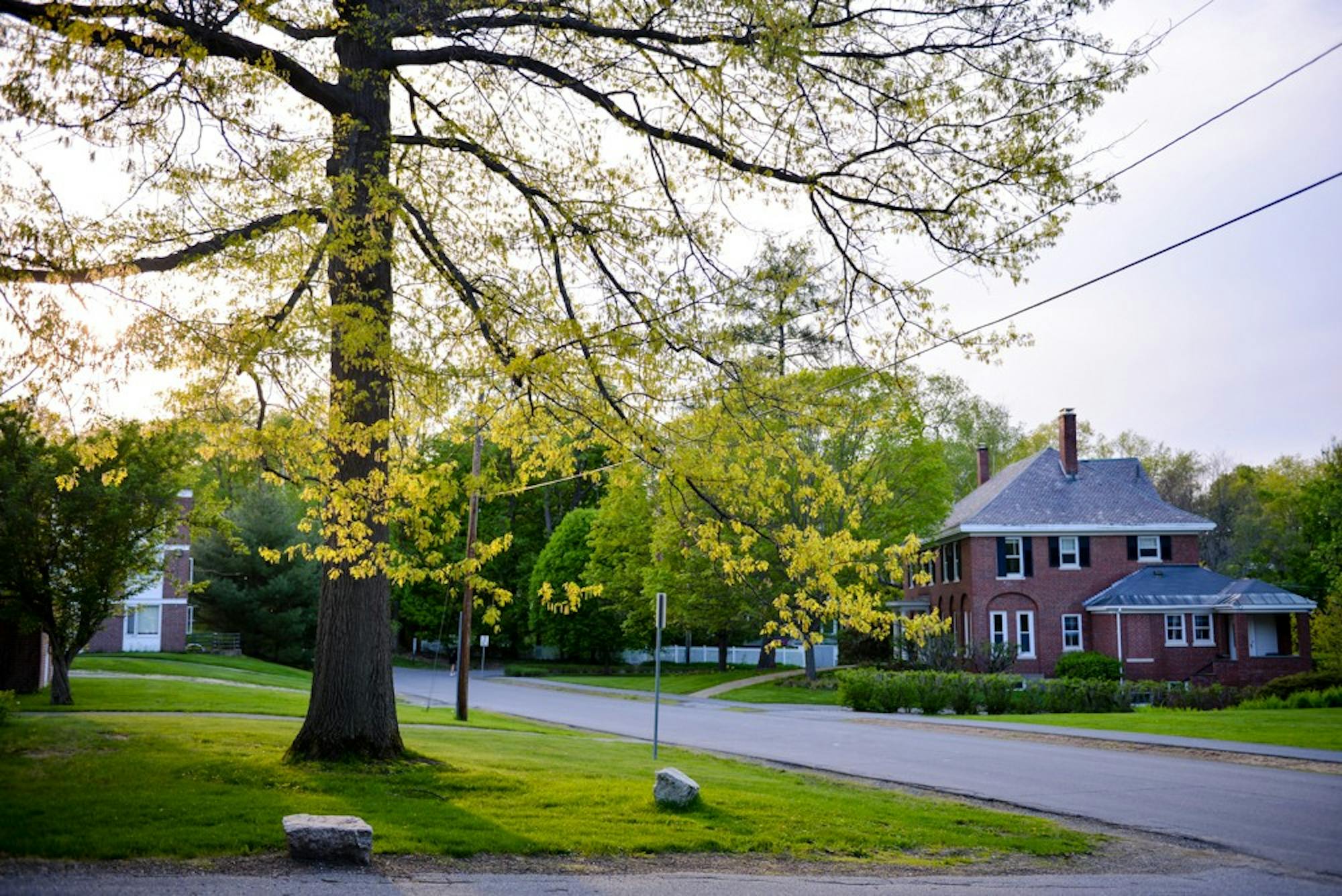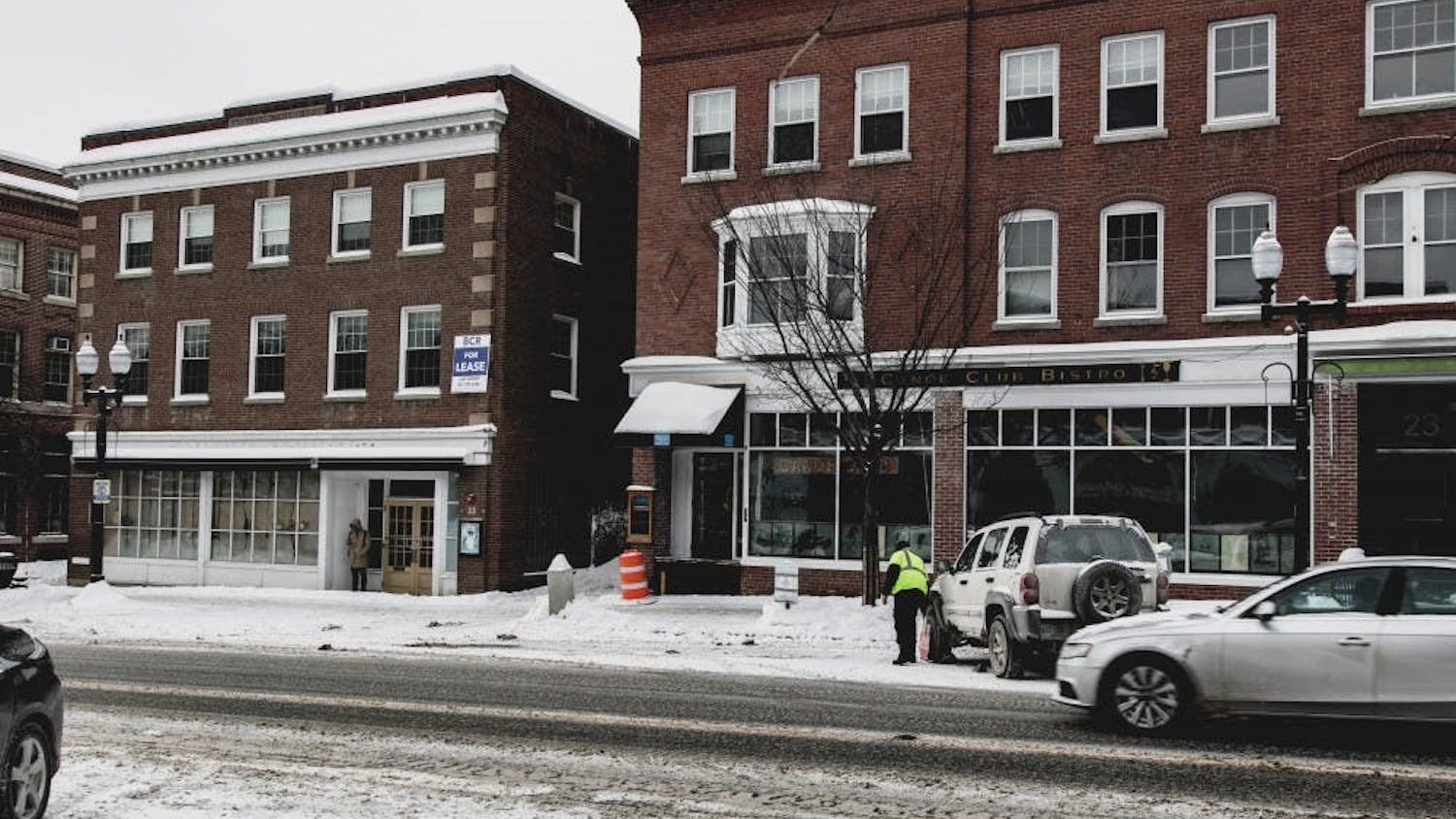On July 9, a juvenile black bear was spotted in a tree behind the Parkhurst Administration building, the latest in a series of recent bear sightings near Dartmouth’s campus and in Hanover. The 200- to 300-pound bear, which stayed on the tree for about two hours before climbing down and disappearing into the woods behind Dartmouth Cemetery, is among the 11 bears in town this summer..
The recent bear sighting has reignited discussions about bears in Hanover. In an email to undergraduate students on Monday, Dean of the College Kathryn Lively wrote that the College has “put the word out” to local undergraduate, graduate and professional students that Hanover is “tightening requirements for securing trash and escalating enforcement.”
“This time of year, we have lots of bear sightings,” Hanover town manager Julia Griffin said. “The blueberries and the natural food sources that they enjoy are not quite plentiful yet, so bears are hungry.”
According to Griffin, hungry bears, especially mother bears, or sows, venture into towns with cubs for food before the blueberry season begins in late summer. They are often attracted by unsecured garbage or the black oil sunflower seeds commonly found in bird food. If town residents continue to provide food sources, towns can have problems with “nuisance bears” that regularly help themselves from residents’ trash cans and bird feeders, Griffin said.
According to New Hampshire Fish and Game wildlife biologist and bear project leader Andrew Timmins, while people should be cautious around bears, their intentions in entering human settlements are often misunderstood by residents.
“From the time we’re kids, a lot of the media and books and all that make bears out to be these dangerous animals ... but they really shouldn’t be because bears are pretty harmless,” Timmins said. “For folks to understand what a bear in a community is all about, that bear isn’t there because it’s after kids or grandma or anything. It’s there because of the great concentrations of unsecured human foods.”
Timmins warned that bears can become dangerous when people separate a sow from her cub.
Griffin noted that sows will often leave their cubs in a “babysitting tree” so the cub will be safe while the mother searches for food, but spectators near the base of the tree can awaken the sow’s “mama-bear instincts” and create a dangerous situation if the sows witness people near their cubs.
Safety and Security lieutenant Gene Thompson said that the best way for his department and the Hanover Police Department to respond to bear sightings is to clear the area and “let the bear go back to the woods.”
“Our job is to make sure that everybody on campus, whether visitors, students, staff, faculty — we’re going to make sure that you’re safe,” Thompson said. “Many people are curious and want to take photos [of bear cubs], but we’re really going to do our best to refrain on that just because [people’s] safety is more important.”
Timmins said that the best way to prevent bears from coming to Hanover is to remove “attractive sources of food.”
“If we don’t want bears in our communities, we need to be more careful about how we secure our food, because if food’s not available there won’t be bears,” he said.
Griffin said that both graduate and undergraduate students living off campus over the summer term can exacerbate the bear problem because they may not completely wash recycled food containers, properly secure barbecue grills or have access to bear-proof trash cans, so the town has to “retrain everybody, both students and landlords, about what is or is not going to work with bears.”
If landlords do not properly respond to the town, Griffin said that Hanover might be “forced” to bring in the Fish and Game enforcement team to ensure that town residents are properly securing food sources and fine those who are not.
If bears continue to pose a “nuisance” to the neighborhood and search for food near residents’ homes, Fish and Game is sometimes forced to euthanize the animal, but Griffin said she hopes that “we can do better than that in Hanover.”
“If we have to trap a bear because its behavior has gotten to the point where there’s just no other options, more often than not, that bear is just going to be destroyed rather than relocated because we know relocation just doesn’t work,” Timmins said. “It’s not uncommon for people to call and request bears get moved, but we’re very hesitant to do it because that’s usually a death sentence for a bear if we have to come and set a trap and catch it.”
Bears who do get relocated often find their way back to the towns they came from. For example, a local sow named Mink who was taken almost as far north as the Canadian border by Fish and Game officials in June 2018, was spotted in Hanover again last May. Griffin said that there are 11 sows with cubs near downtown Hanover, and that many are probably Mink’s daughters.
“Bottom line, we can coexist with this great extended family of bears in our region,” she said. “We just need to manage our trash, our recycling, our grills and our bird feeders.”

Lauren ('23) is news executive editor for The Dartmouth. She is from Bethesda, Maryland, and plans to major in government and minor in public policy.




